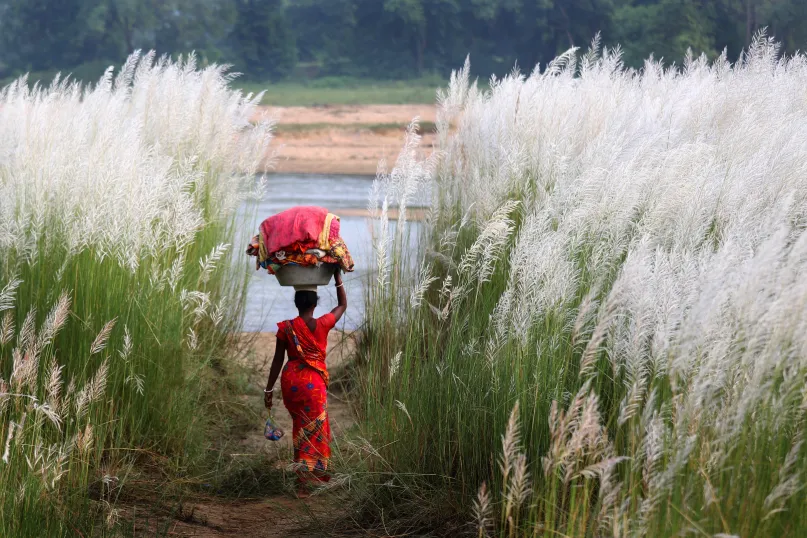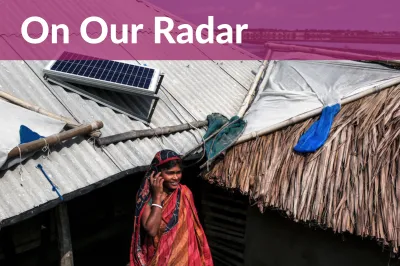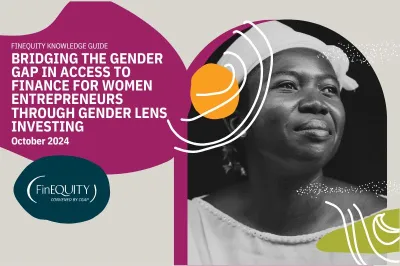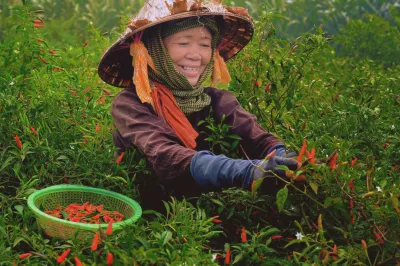Top Five Takeaways From the #FinEquity2024 Annual Convening

FinEquity 2024 Annual Convening was a great moment for many of us to reconnect virtually! Over 450 participants attended the event with more than 60 countries represented. Based on a survey we conducted on day one, 80% of attendees had already attended a FinEquity event and were engaging with the community. What I found particularly encouraging was that 100% of survey respondents said they were likely, or very likely, to use something they learned in the next six months!
With the event just behind us, here are my top five takeaways:
FinEquity has grown since last year. We are now reaching over 8,000 researchers, practitioners, policymakers, and donors globally prioritizing women's economic empowerment through financial inclusion. The community’s growth is largely driven by its regional hubs, reaching over 2,500 people through FinEquity ALC (in Spanish) and 800 through FinEquity Africa. During a fireside chat with Peru’s former Minister of Development and Social Inclusion, Carolina Trivelli, IFC's Emmanuel Nyirinkindi highlighted that a community like FinEquity can help “choose and magnify” important topics in women’s financial inclusion, drive collective action and help jointly solve priority issues.
We received over 30 submissions from the FinEquity community to share their learnings and emerging best practices at the event. During Member Share session 1, panelists highlighted how climate shocks and stresses are intensifying existing gender gaps, with women facing food scarcity, displacement, and an increasing number of off-farm responsibilities. FinEquity participants including UN Women, Mercy Corps-Agrifin, and VisionFund International shared their experiences in the design, delivery and success of climate-smart financial solutions. These solutions included insurance products like (1) UN Women’s health and crop insurance program for rural women in Senegal and Mali, (2) VisionFund International’s African and Asian Resilience in Disaster Insurance Scheme (ARDIS), a climate insurance initiative that supports disaster-resilient MFIs to implement products that bring resilience to climate shocks for clients in Africa and Asia, and (3) Mercy Corps-Agrifin's “Lima Salama” hybrid crop insurance program in Tanzania.
World Vision and UN Women highlighted the need to create innovative partnerships in order to ensure business viability of insurance products for women in areas affected by climate-shocks. Mercy Corps-Agrifin also emphasized the need for products to be informed by data on women’s specific needs and preferences.
Member share session 2 featured innovations in WEE measurement including lessons learned from ongoing measurement initiatives, new thinking on how to measure financial health and well-being, and a case study from BRAC Tanzania on how digital financial services can contribute to financial control and household decision making. Drawing on this comprehensive guide, a simple conceptual model and five step methodology to measure WEE in financial inclusion initiatives, helped to define common concepts such as access, agency, and achievements and frame the conversation.
CARE shared their experience developing indicators for financial health, based on a review of existing frameworks, which focused on financial resilience, confidence control, and quality of life. Women’s World Banking shared lessons learned in applying their WEE measurement framework in terms of, what makes good questions that contribute to answering research questions and why they place more value on mixed-method studies. Final insights came from a WEE-DeFine study, which incorporated several indices on financial control, social inclusion, and household decision making into their measurement of WEE in a randomized experiment with BRAC microfinance clients using mobile money for loan repayments.
A dynamic panel exchanged insights on how integrating a gender lens into private investments can yield significant benefits—with evidence of success from Women’s World Banking Asset Management and Deetken Impact’s Ilu Empowerment Fund. Investors are supporting financial institutions to increase revenue growth and improve portfolio quality by (1) embedding women in leadership roles, (2) supporting institutional diversity, equity and inclusion efforts, (3) strengthening the collection, use and analysis of sex-disaggregated data, and (4) tailoring products and services for women-led MSMEs. Catalytic capital providers such as Roots of Impact are deploying social impact incentives (additional investment to improve specific targets) alongside the business investment of partners to deepen social impact. On the financial institution side, innovative banking models such as Tyme – a digital bank in South Africa and the Philippines serving predominantly low-income and women-led businesses – emphasizes quick accessibility and repayment flexibility, facilitated by strategic partnerships and robust data analytics.
As a wrap-up to the event, CGAP CEO, Sophie Sirtaine shared her personal reflections from FinEquity 2024 Annual Convening and how they were essential to deliver on CGAP’s new strategy. With 746 million still financially excluded, she highlighted the “business as usual” approach will not help to close the access gap. Data and more knowledge sharing on what works in reaching women and why is still needs to be prioritized. This will be even more important given the changing climate reality; women’s needs must indeed take center stage in helping build climate resilience through financial inclusion. For such efforts to succeed, a stronger focus on establishing and measuring gender outcomes is necessary: in her words, “This will require private investment that intentionally embeds a gender lens.”
Check out the recordings in English, Spanish and French and all the presentation slides!


